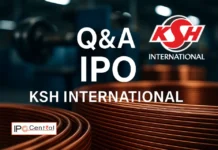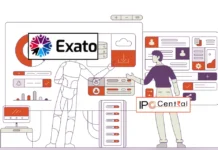Initial Public Offerings (IPOs) are a significant event for companies transitioning from private to public, allowing them to raise capital and increase their market presence. Among the various investor categories in an IPO, the employee quota is an important one, offering employees a chance to invest in their own companies. This article examines the past performance of IPOs with employee quotas, along with the importance, regulations, and benefits of this often-overlooked aspect.

Table of Contents
What is Employee Quota in IPO?
There are primarily three investor categories in an IPO: Qualified Institutional Buyers, Non-Institutional Buyers, and Retail Investors. In some IPOs, there is also an Employee category. Under this quota, the company’s employees are allocated shares, usually at discounted rates. However, as per SEBI regulations, this quota cannot exceed 5% of the company’s post-issue paid-up capital. This allocation serves as an incentive, fostering employee participation in the company’s growth while reinforcing its stake in its long-term success.
Fun Fact – A company can offer a discount of up to 10% of issue price to its employees
Trends in Mainboard IPOs with Employee Quota
Recent trends highlight that more companies have included the employee category in their IPOs. This trend shows a broader acceptance of employee participation as a strategy for fostering a culture of ownership. Companies across sectors recognize the value of involving employees in their growth through equity ownership.
Recent Mainboard IPOs with Employee Quota
| IPO Name | Allotment Price (INR) | Employee Discount (INR) | Employee Quota Subscription (X) | Effective Returns (%) |
|---|---|---|---|---|
| #REF! |
Recent SME IPOs with Employee Quota
| IPO Name | Allotment Price (INR) | Employee Discount (INR) | Employee Quota Subscription (X) | Effective Returns (%) |
|---|---|---|---|---|
| Infinity Infoway | 155 | 0.77 | 99.48 | |
| Goel Construction | 263 | 10 | 1.01 | 25.53 |
| Current Infraprojects | 80 | 0.68 | 90.94 | |
| Star Imaging | 142 | 0.31 | -3.06 | |
| Parth Electricals | 170 | 8 | 0.87 | 12.78 |
| Glen Industries | 97 | 5 | 0.36 | 65.62 |
| Meta Infotech | 161 | 10 | 0.59 | 56.46 |
| Tankup Engineers | 140 | 0.36 | 31.25 | |
| Grand Continent Hotels | 113 | 1.00 | -5.09 | |
| Tejas Cargo | 168 | 0.73 | 0.00 | |
| PS Raj Steels | 140 | 15 | 1.20 | 20.48 |
| Chandan Healthcare | 159 | 0.21 | 9.03 | |
| BR Goyal Infrastructure | 135 | 1.11 | 5.56 |
Key Features of Employee Quota in IPOs
Employee Quota in IPOs is designed to allocate a specific percentage of shares to employees, promoting their engagement and investment in the company’s future. Here are the key features:
- Exclusive Allocation – A specific portion of shares is reserved exclusively for eligible employees of the company going public.
- Discounted Pricing – Shares under the employee quota are typically offered at a discount compared to the issue price available to the general public.
- Regulatory Cap – The allocation cannot exceed 5% of the company’s post-issue paid-up capital, as per regulatory guidelines.
- Encouraging Employee Participation – This reservation aims to boost employee engagement by allowing them to invest in the company’s future growth.
- Lock-in Period – In some cases, there may be a mandatory lock-in period, restricting employees from selling their allotted shares for a specified duration.
- Non-Transferable Benefits – The discounted shares under this quota are typically non-transferable, meaning employees must purchase them directly and cannot transfer the benefits to others.
- Separate Bidding Process – Employees need to bid separately under the reserved category, distinct from retail or institutional investors.
- Impact on Company Ownership – By allowing employees to hold equity, the quota strengthens their sense of ownership and alignment with the company’s long-term success.
Advantages of Employee Quota in IPOs
- Encourages Employee Participation – Employees can buy shares at a discounted rate, making investment more accessible and fostering a direct stake in the company’s future.
- Boosts Morale and Engagement – Equity ownership strengthens employees’ emotional and financial ties to the organization, leading to higher motivation and job satisfaction.
- Supports Wealth Building – As share prices grow, employees benefit from long-term capital appreciation, contributing to personal financial stability.
- Aligns Employee and Company Goals – With a financial interest in the company’s success, employees become more invested in its growth and performance.
- Ensures Preferential Allocation – A dedicated quota reduces competition with retail and institutional investors, increasing employees’ chances of securing shares.
- Encourages Retention – Ownership incentives make employees more likely to stay, reducing turnover and fostering long-term commitment.
- Provides Flexible Investment Options – Unlike other investor categories, employees can often invest smaller amounts based on their financial capacity.
- Offers Potential Tax Benefits – In certain jurisdictions, employee stock purchases may come with tax advantages, making the investment even more attractive.
- Strengthens Employer-Employee Relations – Offering company shares signals trust and appreciation, reinforcing a positive work environment.
- Boosts Market Perception – Employee participation demonstrates confidence in the company, positively influencing investor sentiment and overall market credibility.
Eligibility Criteria for Employees in IPOs
- Permanent Employment – Only full-time, permanent employees of the company are eligible; contractual or temporary staff are generally excluded.
- Direct Association with the Company – Employees must be directly working for the company or its subsidiaries. Holding or group company employees may not be eligible.
- Active Payroll Status – The employee must be on the company’s payroll at the time of IPO application. Those who have resigned or been terminated before the IPO may not qualify.
- Resident Status – In most cases, only Indian resident employees are eligible, while NRIs may have restrictions or different rules.
- Separate Application Category – Employees must apply under the designated “Employee Reservation” category and not in retail or institutional investor categories.
- Maximum Investment Limit – There is a cap on how much an employee can invest, as per company policy and SEBI regulations.
- No Transfer of Quota Rights – The benefit is exclusive to eligible employees and cannot be transferred to family members or others.
- Lock-in Period (If Applicable) – Some IPOs restrict selling the allotted shares for a specific period.
- Regulatory Compliance – Employees must meet SEBI guidelines and any company-specific eligibility conditions.

Conclusion
IPOs with employee quotas benefit both employees and companies. By allowing employees to invest in their organizations, companies can enhance motivation, attract talent, and align interests between employees and shareholders. As regulatory support grows, more companies may adopt this model, further embedding a culture of ownership within their workforce. This strengthens individual commitment and contributes to the company’s success in the public market.




































